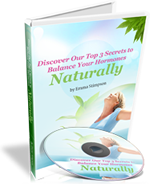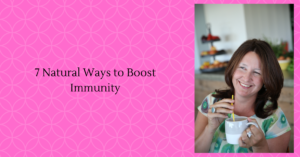Never Has Your Health Been More Important
In these uncertain times, our personal commitment to health has far reaching consequences. I encourage you to focus on what you CAN do to boost immunity. The ripple effect of this choice will help to ease panic and anxiety in our families and communities and reduce the impact of contagious viral infections on people who are immune-compromised.
Book a Consultation with Naturopath Emma Stimpson
1. Follow Public Health Guidelines
Continue to stay up-to-date with the latest public health recommendations. Click here to see the most up to date public health information. This information will help you stop the spread of viral infections. Check frequently as the information is changing on a regular basis. Practice social distancing. Wash your hands with hot water and soap (and teach your children how to do this). Quarantine if you have returned from overseas travel. Quarantine if you have symptoms of cold/flu. This is more important if you have been in contact with someone whose disagnosis has been confirmed.
2. Get Enough Sleep
Sleep is essential to boost immunity naturally. If your sleep is disturbed, do everything you can to restore a regular sleep cycle. Difficulties with falling asleep and broken sleep will impact your immune system.
- Make sure your bedroom is cool and dark.
- Follow a regular night-time routine to prepare your body for sleep.
- New research indicates that wifi may have a disruptive effect on our circadian rhythm. Switch off the wifi before you go to bed.
- Avoid electronic devices in the bedroom (including TVs, mobile phones and electronic alarm clocks). Buy a battery operated travel alarm clock that does not have flashing lights.
- When you wake up, expose your eyes to natural UV light. Open the curtains and go outside. Have breakfast in your garden or go for a walk.
- Manage stress and reduce anxiety to support your sleep. Read more below and here
- Hot flushes and night sweats affecting your sleep? Read more here.
3. Exercise – Just Enough to Boost Immunity
Exercise will help to boost immunity. But if you over-exercise it can suppress your immune system. As a result, professional athletes (the fittest members of our communities) are often immuno-compromised due to over-exercising. The key here is to get just enough. Twenty minutes/day of cardio-vascular exercise that gets you huffing and puffing and sweating is enough to help your body metabolise the stress hormones that can impact your immune system. This is a good starting point. The fitter you are, the more exercise you will be able to complete without adversely affecting your immunity.
Try to exercise in nature when you can. This will also help to reduce your stress levels. It will also help with social distancing.
4. Stress Management
Stay calm. Anxiety will increase the production of stress hormones and can suppress immunity. To read more about the effect of stress on your hormones click here.
- Exercise can help to reduce the impact of stress on your immune function (read above).
- Keep doing hobbies that you love. If you love to paint or do craft – keep doing it. Some people love reading. Others love watching movies. Maybe you love taking baths or playing with your pets? Whatever you love to do that keeps your attention focused in the present moment can be wonderful for inducing the relaxation response in your body.
- Specific herbal medicines can support stress hormone production and receptor function, relieving anxiety and supporting immunity. Herbs including Bacopa moniera, Withania somnifera, Astragalus membranaceus and Eleutherococcus senticosus can be great stress reducers.
- Meditation and breathing techniques can help calm your nervous system and induce the relaxation response in your body. If you are feeling anxious, try this breathing technique for 5 minutes each day.
-
LENGTHENING THE EXHALE
- Sit in a comfortable position with your back straight and eyes closed.
- Bring your attention to your nose. Focus on the sensation of the cool breath moving in and out of the nose.
- Start to count to 4 on the inhale and 4 on the exhale.
- Do this for 4 0r 5 rounds.
- Now we will start to focus on lengthening the exhale.
- Breathe in for 4, breathe out for 5.
- Now breathe in for 4, breathe out for 6.
- Next breathe in for 4, breathe out for 7.
- Lastly breathe in for 4, breathe out for 8.
- If you feel like you are straining the breath, reduce the length of the exhale. For example, you may feel more comfortable inhaling for 4 and exhaling for 6. Exhaling for 8 may be too much of a strain for you.
- Continue for at least 5 minutes.
-
5. Nutrients to Support Immune System Health
Nutritional status is closely associated with the severity and susceptibility to infectious disease.
Inadequate nutrition impairs the functioning of the immune system and results in increased
susceptibility to infection. A balanced nutritious diet is essential for immune health. The following nutrients are of key importance.
-
Zinc
Zinc deficiency can result in a compromised immune system. Although zinc possesses direct antiviral properties it also helps generate antiviral responses in the body.
-
Vitamin C
Vitamin C may boost immunity. Low vitamin C can impact multiple organs, resulting in impaired immunity and a higher susceptibility to infections. A study conducted on mice concluded that vitamin C shows an antiviral immune response in the initial stages of viral infection. Researchers at Zhongnan Hospital of Wuhan University launched a clinical trial with 140 patients in February to test whether ultrahigh doses of vitamin C, delivered intravenously, could treat the viral infection more effectively than a placebo. The test group will receive infusions twice a day for seven days, with each infusion containing 12g of vitamin C. (The daily recommendation for an adult man is only 90mg.) The trial will be completed in September, and no results are yet available.
-
Vitamin E
Vitamin E acts as a free radical scavenger and works in tandem with selenium. An individual with a deficiency in vitamin E will lean toward a pro-oxidative state. As with selenium, a deficiency of this vitamin will increase oxidative stress and may cause an increase in viral pathology.
-
Vitamin A
Vitamin A is perhaps the best studied nutrient with regard to viral infection. More is known about how it
modulates immune function than for any other micronutrient. Much attention has been focused on the relationship between vitamin A deficiency and infection with the measles virus. The severity of other viral infections including rotavirus and herpes simplex, increased in the presence of a deficiency of vitamin A. Pathological changes in the epithelium of the respiratory tract where also seen with Vitamin A deficiency. -
Vitamin D
Vitamin D can modulate the immune response. Deficiency in vitamin D can increase susceptibility to infection.
6. Herbal Medicine to Support Immune System Health
Herbal medicine can support your stress response and boost your immunity naturally. This may reduce your susceptibility to infection. Herbal medicine can also be used in the early stages of infection to reduce symptoms and assist in recovery. Best results are seen by choosing the correct herbs at the right time.
- Allium sativum (Garlic) Throughout history many different cultures have used garlic for prevention and treatment of different diseases. When garlic is chopped or crushed, allinase enzyme is activated and produces allicin. It is allicin that is the principal bioactive compound present in garlic. Although very little work has been done to investigate its antiviral properties, a few studies have reported that garlic extract showed in vitro activity against many common viral infections.
- Glycyrrhiza glabra (Licorice) is a common herb which has been used in traditional Chinese medicine for
centuries. Recent studies have shown that it possesses many properties, one of which is the ability to
boost immunity to combat viral infections. It may also help to soothe a dry cough. Licorice is not suitable for every person and must be avoided if you have high blood pressure. - Echinacea purpurea (Echinacea) There are some interesting past studies that have demonstrated antiviral properties against certain common viruses by some of the isolated phytochemicals from Echinacea. A recent study (although not peer-reviewed) suggests that Echinacea may act as a prophylaxis but it is still too premature to assume anything till more detailed studies are done.
7. Ask for Help to Get This Right
Please ask for help to get this right. I have included many lifestyle changes that any person could make to support their immune health. But if you are planning on including herbal medicines or specific nutrients as supplements, avoid self-treating. Always consult an appropriately qualified healthcare professional before attempting to take any supplements. Some herbal medicines cause adverse medical and health issues for certain individuals. If you would like to book a consultation so I can prepare an individualised immune health support plan for you please click the pink button below. Consultations are currently available over the phone and supplements will be sent to you in the post.
Yours in Health,



 At the age of 45 I started getting migraine headaches, stomach cramps, mood swings plus feelings of illness and sight issues prior to my periods. This had been happening for about six months before I consulted with naturopath Emma Stimpson....
At the age of 45 I started getting migraine headaches, stomach cramps, mood swings plus feelings of illness and sight issues prior to my periods. This had been happening for about six months before I consulted with naturopath Emma Stimpson....
Book Online
Phone: (03) 5986 5170
687 Point Nepean Rd, McCrae, Vic, 3938, AUS
(Located at Seaside Osteo)